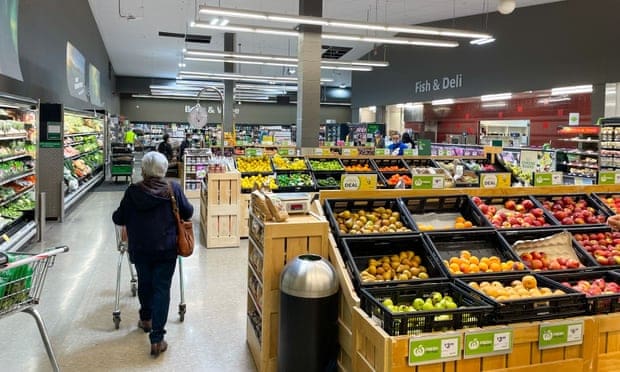Grocery Shopping in Aotearoa: A Parent’s Guide to Navigating New Zealand Supermarkets
Hey there, super parents of Aotearoa! Are you ready to transform your weekly grocery shop into a smooth, stress-free adventure? Shopping for groceries with a Kiwi twist can be a delightful experience, but we know it also comes with its unique set of challenges, especially when the kids are in tow. Fret not! We’ve got the ultimate guide for you to master grocery shopping in New Zealand, ensuring you and your little ones enjoy the journey while snagging the best deals around.
Understanding the New Zealand Supermarket Scene
New Zealand offers a diverse range of supermarket options, each catering to different needs and preferences. From the big players like Countdown, New World, and PAK’nSAVE, to the boutique organic shops and local farmers’ markets, there’s something for everyone! Familiarize yourself with the supermarket closest to your home and their specialty sections. Remember, the layout is key to a quick and efficient trip—especially important when the kiddies are eager to explore every aisle!
Maximise Your Shopping List Efficiency
Every parent knows the golden rule: Never enter a grocery store without a plan. Creating a comprehensive shopping list can save you time, money, and a whole heap of sanity. Group items according to store layout and you’ll zip through those aisles like a pro. But here’s a top tip – let your kids help with the list! It keeps them engaged and can be a sneaky way to teach them about healthy eating choices.
Leverage Technology for Better Deals
Embrace the digital age and let technology be your ally in grocery shopping success. New Zealand supermarkets offer a range of apps and online tools to help you snag sweet discounts. Countdown has a myCountdown app, while New World’s Clubcard can unlock personalized discounts tailored just for you. Board the savings train by downloading these apps and keeping an eye out for special deals and offers!
Understanding Unit Pricing for Budget-Friendly Choices
One of the most effective ways to shop smartly is to understand unit pricing. This lets you compare prices between different sizes and brands, ensuring you get the most bang for your buck. Plus, involving the kids can turn it into a fun math lesson – talk about a win-win situation!
Involve Your Children in the Shopping Process
Turn grocery shopping into a family affair! Assigning small tasks to your little helpers not only keeps them occupied but also teaches valuable life skills. Have them pick out the ripest fruits or select their favorite cereal. It’s all about creating positive experiences and memories—because, let’s be honest, they’ll remember that time they chose the evening’s dessert over the speedy checkout race any day!
Stay tuned for more insights and tips as we delve deeper into the art of grocery shopping in New Zealand with kids. Next up: how to navigate health food aisles, the best strategies for bulk buying, and understanding those sometimes baffling food labels. So, buckle up, dear parents – we’re on our way to make your grocery shopping in NZ as breezy as a walk along the beautiful shores of Aotearoa!

Five Things Parents Should Know When Preparing for Grocery Shopping in New Zealand
1. Plan Ahead with Themed Meal Planning
Before stepping foot in the supermarket, consider themed meal planning to streamline your grocery list. This involves assigning each day of the week a specific theme like “Meatless Monday” or “Fish Friday.” This tactic not only simplifies decision-making but also ensures dietary variety throughout the week. Plus, it’s a fun way to involve the kids in meal selections and can spark their excitement about trying new foods!
2. Be Mindful of Seasonal Produce
Buying fruits and vegetables in season not only tastes better but it’s often kinder to your wallet too. New Zealand supermarkets and local farmer’s markets are rich with seasonal options. Educate yourself and your kiddos about what’s in season and plan meals accordingly. Bonus points: it’s a great opportunity to teach the little ones about sustainable eating practices!
3. Familiarize Yourself With Loyalty Programs
A savvy shopping parent knows the value of loyalty programs. Joining supermarket loyalty schemes like Fly Buys and Airpoints can lead to significant savings over time, not to mention the occasional free coffee or treat which we all know can be the perfect shopping companion. Make sure to check for any available rewards before you go shopping; you might just find that your points can offset some of your total cost!
4. Consider Dietary Requirements
If you’re catering to special dietary needs or allergies, New Zealand supermarkets offer a wide range of products to fit every requirement. From gluten-free bread to lactose-free milk, vegan meat substitutes to halal-certified meats, be sure to explore the health food and international aisles of the stores. Providing a diverse range of choices also encourages kids to be more explorative in their eating habits.
5. Shop During Off-Peak Hours If Possible
Timing can be everything when it comes to a peaceful shopping experience. Try to pinpoint off-peak hours at your local store – usually on weekday mornings or late evenings. Shopping during these times can help avoid the crowds, reducing stress and making it easier to navigate the store with children. It can be the difference between a chaotic trip and a successful shopping expedition!
Remember, knowledge is power in the supermarket aisles. By keeping these five key considerations in mind, you’re already on the right track to conquering the grocery game in New Zealand. With a little prep and some savvy strategies, you can turn a routine chore into a productive and even pleasurable family outing. Let’s make that next grocery run the best one yet!
See more great Things to Do with Kids in New Zealand here. For more information see here
Disclaimer
The articles available via our website provide general information only and we strongly urge readers to exercise caution and conduct their own thorough research and fact-checking. The information presented should not be taken as absolute truth, and, to the maximum extent permitted by law, we will not be held liable for any inaccuracies or errors in the content. It is essential for individuals to independently verify and validate the information before making any decisions or taking any actions based on the articles.




